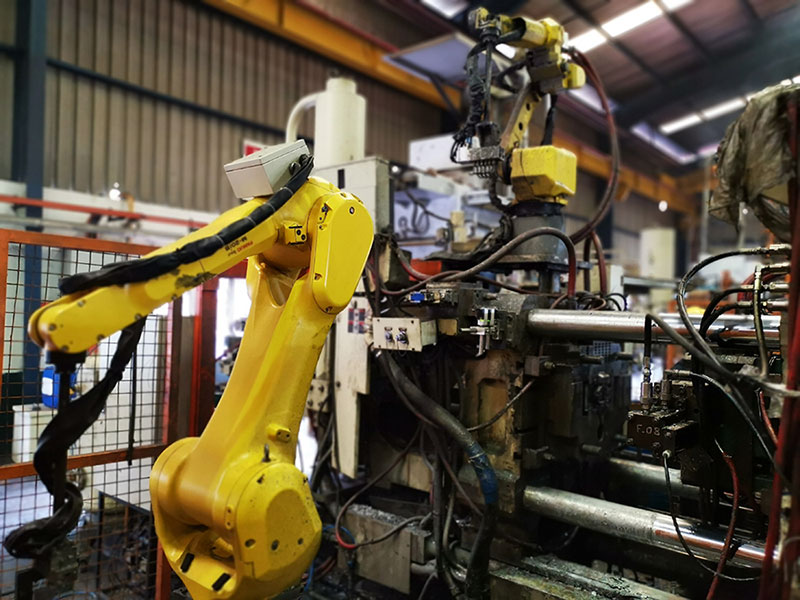Die casting in Malaysia is now a vital part of the country's manufacturing industry, contributing significantly to sectors such as electronic, automotive, aerospace, and consumer goods. This process involves injecting molten metal into molds at high pressure to create precisely-crafted and complex components, with little need to process them post-production. The Malaysian manufacturing industry has changed rapidly, with companies investing in state-of-the-art technology to enhance the quality and efficiency of die-cast products. This has meant that die-casting has evolved into an essential link in the supply chain of global importance, providing high-quality metal parts to international markets. Government initiatives supporting the growth of industry and advancements in technology has further strengthened the position of Malaysia as a key die-casting centre within Southeast Asia. With skilled workforce strong infrastructure, as well as strategic location has made Malaysia the ideal destination for those looking to invest in die-casting manufacturing.

Automotive is among of the major consumers of die-cast components in Malaysia because manufacturers depend on this process to produce sturdy and durable vehicle parts. Transmission cases, engine blocks, and structural components are often made from aluminum and magnesium alloys due to their high weight-to-weight ratio as well as durability to corrosion. As the trend shifts to electric cars, the need for precision die-cast components has increased as manufacturers focus on improving efficiency and reducing the weight of their vehicles overall. Many Malaysian die-casting businesses have made relationships with major automotive manufacturers and supply critical parts that meet stringent international standards for quality. The country's role in the automotive industry is further enhanced by investment into research and development which improve the production methods and make sure that the manufacturers stay competitive in a rapidly evolving market. As automation is integrated into and intelligent manufacturing Die-casting is set to become even more productive and ingenious over the years ahead.
In addition to automotive applications, die casting is also important to Malaysia's growing electronics sector. Demand for high-end components for consumer electronics, telecoms, and industrial applications is driving the growth of die-casting capabilities across the nation. Electronic devices require aluminum casings, heat-sinks as well as intricate connectors each of which has to be produced with the highest accuracy to guarantee the highest performance. Malaysian companies have taken advantage of advanced techniques such as vacuum die casting and semi-solid metal casting in order to eliminate failures and improve the quality of their products. The country's well-established electronic supply chain, coupled with the country's access to global markets, has positioned Malaysian die-casting businesses as reliable supplier to major technology companies. As technology for 5G smartphones, smart devices, and Internet of Things applications continue to develop, demand for premium die-cast parts will likely to increase which will further fuel the industry's development.
Sustainability has been a key issue for the Malaysian die-casting industry as companies have been implementing environmentally friendly manufacturing practices. Reuse and recycling of metal materials, particularly zinc and aluminum, are becoming commonplace practices in die casting, reducing the amount of waste produced and preserving resources. A lot of manufacturers have adopted energy-efficient melting and casting technologies to minimize carbon emissions and overall energy consumption. This shift to green manufacturing has led industries to look into more environmentally friendly casting methods, like low-pressure casting and gravity die casting, which produces high-quality components with minimal production waste. Coatings and surface treatments that improve the longevity and corrosion resistance of die-cast components are also being developed with eco-friendly components. In a world where industries are pushing towards greener supply chains Malaysian die-casting companies are positioning themselves as leaders in environmentally friendly metal casting, ensuring long-term competitiveness in the international market. To acquire more information please see this official statement

The technological advancements in die casting are changing Malaysia's manufacturing environment, allowing companies to produce more complex and efficient components. Innovations such as computer-aided design 3D printing to create molds for prototyping, and real-time monitoring techniques are increasing precision and reducing production errors. Automation and robotics are also becoming integrated into die-casting procedures to improve efficiency, decrease labor costs, and ensure consistent high-quality. This technology allows Malaysian companies that manufacture dies to compete with international manufacturers by offering superior products with lower lead times. Implementation of Industry 4.0 technologies, such as the Internet of Things and artificial intelligence , is further optimizing manufacturing efficiency as well as predictive maintenance. Through the use of cutting-edge technology, Malaysia's die-casting industry has strengthened its standing as a leading manufacturing center that is able to meet the ever-changing requirements of global markets.
As Malaysia grows its position in the global manufacturing landscape, the die-casting industry is poised to play a greater significance in Malaysia's development economic. The combination of skilled labor, advanced technology, and the strategic support of government provides a favorable environment to growth and innovation in this sector. Automation, artificial intelligence, and analytics using data are changing traditional die-casting processes to make them more efficient and efficient on a global basis. Firms that are embracing these innovations will benefit from the rising demand for precise metal components in a variety of sectors. With a focus on sustainability, quality, and technological innovation, Malaysia's die-casting industry will be able to sustain its long-term growth, contributing to the country's development in both the economic and industrial sectors.
